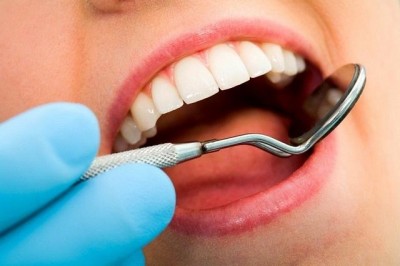Scientific Study Finds Normal Bacteria Could Promote Gum Disease
Published:November 9th, 2011Queen Mary University of London has just published its latest research, and has found normal bacteria which are present in everyone’s mouths could promote gum disease. This research has led to hopes that one day these normal bacteria could be manipulated to help protect the gums, lessening the percentage of people who develop gum disease, and who consequently go on to develop periodontal disease.
The research was carried out at Queen Mary’s Blizard Institute in conjunction with scientists in the US, and also involved Medical Research Council Clinical Research Training Fellow Mark Payne, with the findings being published in Cell Host and Microbe at the end of October. The study involved two groups of mice, with one group having normal bacteria in their mouths while the other group was raised to be bacteria free.
Small amounts of Porphyromonas gingivalis were introduced into the mouths of each group. The mice with normal bacteria subsequently developed periodontal disease while the other group remained free of the disease. These findings show that when normal bacterium is present, the introduction of P. gingivalis stimulates its growth. Even though P. gingivalis is only introduced in very small quantities it can have a disproportionately large effect on the immune and inflammatory system, and the findings prove that periodontal disease can only develop through the interaction of normal bacteria and P. gingivalis. While hopes are high that a protective product will be developed one day, there is a long way to go before it can be produced as scientists’ first need to discover exactly how normal bacteria affect the development of gum disease.
In the meantime there is no substitute for good oral hygiene, and the best preventative measures are to visit your dentist regularly and to have your teeth cleaned professionally. Dentists and hygienists are also the best people to ask for advice for techniques on how to clean teeth effectively.
Gum disease is highly prevalent, and was found to affect 54% of adults in the UK, according to the latest report from the Department of Health in 2007. Early signs include tender and puffy gums which often bleed when brushed, and if gum disease is caught early enough then it can be easily reversed by having teeth professionally cleaned and paying more attention to daily oral hygiene. If it is allowed to develop it will become periodontal disease, and the effects can be much more serious. Periodontal disease causes the gums to begin pulling away from the teeth, creating pockets of infection around the exposed roots. If left to progress the teeth gradually become loose and will fall out as periodontal disease causes bone loss.
While this is bad enough, this condition can also affect overall health as scientific studies have shown clear links between periodontal disease and heart disease, diabetes, rheumatoid arthritis and respiratory diseases. Part of the reason for this is that periodontal disease causes open wounds in the mouth, creating the perfect opening for bacteria to enter the bloodstream and travel freely around the body leading to an inflammatory response as it tries to fight the infection.
If you think you might have gum disease then you should visit your dentist as soon as possible, and should definitely refrain from using teeth whitening products as although perfectly safe, they are designed to be used on healthy mouths.



Write a Comment of Scientific Study Finds Normal Bacteria Could Promote Gum Disease